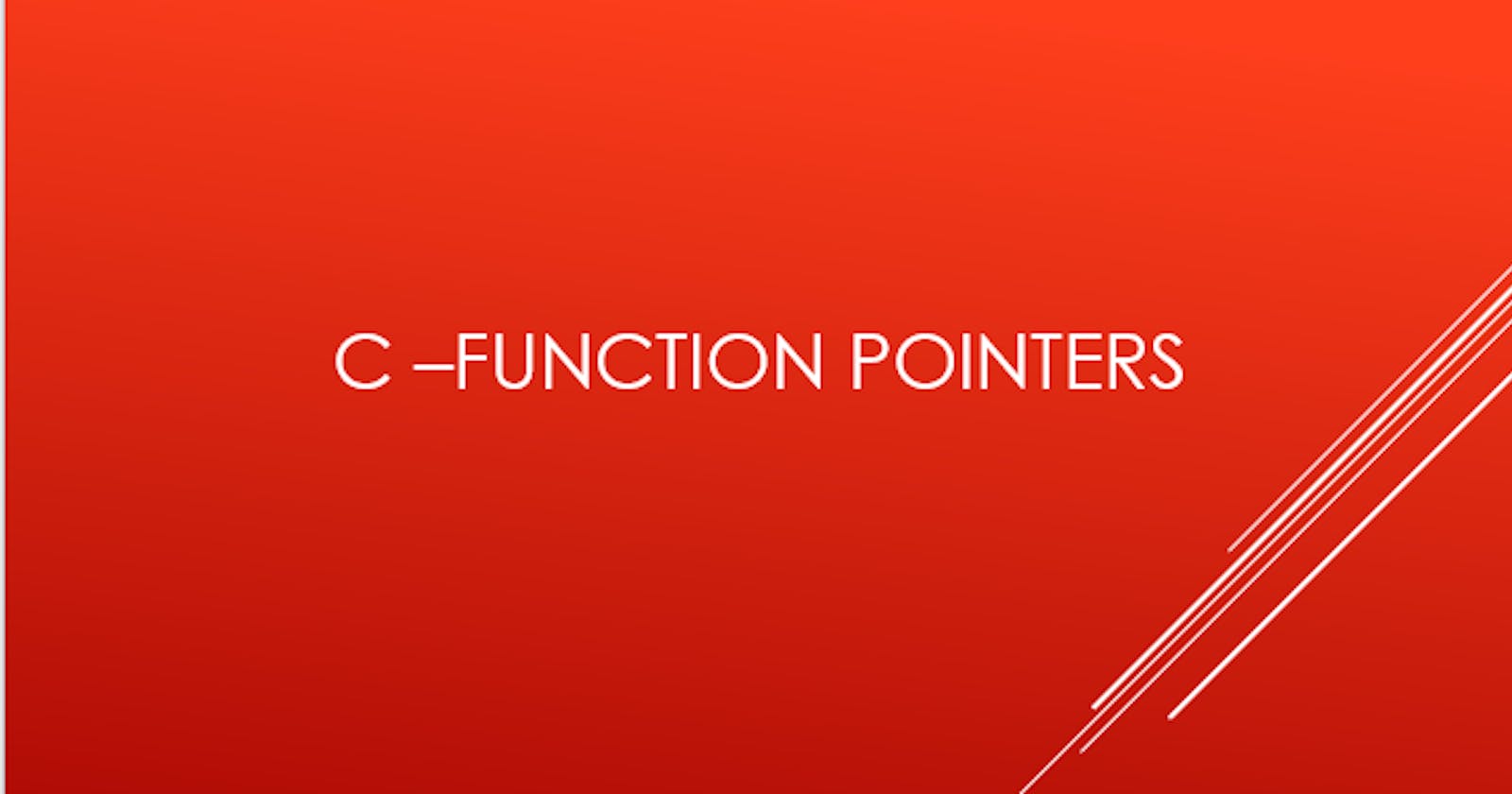Pointer allows the ability to store an address of a variable. Additionally, an address of a function can be stored. Just as there is a pointer to the basic types like int, char, etc, there is a pointer to a function, and a variable is needed to be declared to store the address of a function.
Syntax of a function pointer
return_type (*pointer_name)(argument/s); whereby:-
- return_type: the function return type.
- *pointer_name: name of the pointer.
- arguement/s: number of arguments taken by the function the pointer points to.
Examples
char(*ptr)(char) A pointer that points to a function that returns a character and takes one character argument.
int(*ptr)(int int); A pointer that points to a function that returns an integer and takes two int arguments
Application of Function Pointer
One of the usages of a function pointer is Callback Function. It is a function that calls another function.
Example
The following program prints a name using a callback function.
#include <stdio.h>
void print_name(char *name, void (*f)(char *))
{
if (name != NULL && f != NULL)
{
f(name);
}
}
void print_name_uppercase(char *name)
{
unsigned int i;
printf("Hello, my uppercase name is ");
i = 0;
while (name[i])
{
if (name[i] >= 'a' && name[i] <= 'z')
{
putchar(name[i] + 'A' - 'a');
}
else
{
putchar(name[i]);
}
i++;
}
}
void print_name_as_is(char *name)
{
printf("Hello, my name is %s\n", name);
}
int main()
{
print_name("Bob", print_name_as_is);
print_name("Bob Dylan", print_name_uppercase);
printf("\n");
return 0;
}
Explanation
- The program has two functions that take one string argument and return a void (nothing);
- The two functions print the passed string on its parameters.
- The third function (print_name()) is a void function that has two arguments:-
- a string (char *name)
- a pointer variable (void (f)(char )) - which points to a function that returns a void and takes one string argument.
void print_name(char *name, void (*f)(char *))
{
if (name != NULL && f != NULL)
{
f(name);
}
}
The function that is passed within the bracket of the pointer (f()) takes a string argument that is why "name" is placed. In other words, it is calling back to a function that takes a string argument. The function is called in main:-
print_name("Bob", print_name_as_is);
"Bob" representing the string argument that the function takes (char *name) print_name_as_is - a called function (the function called in another function (print_name)) is called and executes. The function pointer in the printname() function necessitate the operation.
Hopeful that this write-up will be of help to you.
